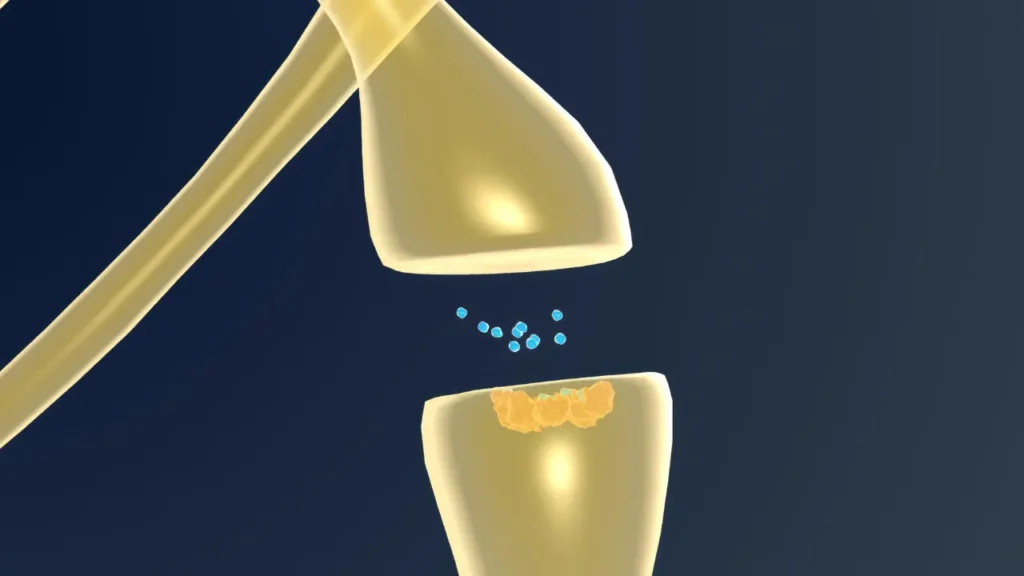The search for natural nootropic substances is becoming more popular, especially with substances that can lead to cognitive enhancement and peak mental performance. Among these, the plant genus Simaruba, which is well-known for its therapeutic qualities, has drawn interest due to its possible advantages in improving mental clarity, attentiveness, and focus. To optimize cognitive development while reducing dangers, this article explores the nature of simaruba, its health advantages, ideal dosage, adverse effects, possible substance interactions, and responsible use.
You May Also Like:
ONNIT Supplements Antarctic Krill Oil Reviewed: A Leading Memory Support Supplement
Water Hemlock: Benefits, Dosage, Side Effects, Drug Interactions, And Other Important Information
Simaruba: Benefits, Dosage, Side Effects, Drug Interactions, and Other Important Information is an original (NootropicsPlanet) article.
Nature of Simaruba
Plants in the Simaroubaceae family are prized for their bitter bark and medicinal qualities. Simaruba amara is the most well-known species in this genus. This plant is frequently found in the tropical parts of the Americas. Quinoids which are among its chemical elements give simaruba its bitter flavor and are thought to play a role in its therapeutic qualities.
Health Benefits of Simaruba
Simaruba which is now known for its nootropic potential, also harbors a range of health benefits that extend beyond cognitive enhancement. These benefits are largely attributed to its rich composition of bioactive compounds, particularly quassinoids which exhibit diverse pharmacological activities. Here, we delve into the specific health benefits of Simaruba, providing a clearer understanding of its therapeutic potential.
1. Antiparasitic Properties: Simaruba has been traditionally used for its antiparasitic effects, particularly in treating conditions like malaria and amoebiasis. The quassinoids found in Simaruba exhibit strong antiparasitic activity by inhibiting the growth and proliferation of parasites, making it an effective natural remedy for certain parasitic infections.
2. Antimicrobial Activity: The extract of Simaruba has demonstrated significant antimicrobial properties against a variety of pathogens, including bacteria and fungi. This antimicrobial activity makes Simaruba a valuable natural resource for developing alternative treatments for infections, especially in the rise of antibiotic resistance infections.
3. Anti-inflammatory Effects: Chronic inflammation is a root cause of many diseases, including cardiovascular diseases, diabetes, and cancer. Simaruba has been shown to possess anti-inflammatory properties, potentially through the inhibition of inflammatory cytokines and mediators. This anti-inflammatory effect can contribute to the prevention and management of chronic inflammatory conditions.
4. Antioxidant Capacity: Oxidative stress plays a significant role in the aging process and the development of many chronic diseases. The compounds in Simaruba, including quassinoids, have antioxidant properties that help neutralize free radicals, reducing oxidative stress and potentially lowering the risk of chronic diseases.
5. Anticancer Potential: Preliminary research has indicated that certain quassinoids in Simaruba may possess anticancer properties, inhibiting the growth of cancer cells and inducing apoptosis (programmed cell death) in various types of cancer. While this area of research is still emerging, Simaruba could hold promise as a component of natural therapies for cancer.
6. Gastrointestinal Health: Simaruba has been used traditionally to treat digestive issues, such as diarrhea and dysentery. Its antiparasitic and antimicrobial effects contribute to this benefit, helping to alleviate gastrointestinal infections and restore healthy digestive function.
7. Immune System Support: The bioactive compounds in Simaruba may also play a role in supporting the immune system. By exerting antimicrobial, anti-inflammatory, and antioxidant effects, Simaruba can contribute to the overall strengthening of the immune response, helping the body resist and fight off infections more effectively.

Chemistry of Simaruba
Simaruba’s chemistry is distinguished by the high concentration of quassinoids. These structurally intricate triterpenoid chemicals have been identified from the bark, leaves, and roots of the Simaruba plant. The main bioactive ingredients in the plant that give it its therapeutic qualities are also quassinoids. As mentioned, quassinoids have antiviral, antiparasitic, anticancer, and potential nootropic effects. There is considerable structural diversity among quassinoids, and each variation has its own biological activity. Simaruba’s medicinal potential is supported by its chemical complexity, which also motivates research into the pharmacological uses of the drug and the ways in which it influences human health.
Physiological Mechanism of Action of Simaruba
Simaruba’s physiological mechanism of action is related to the central nervous system, especially its effects on cognitive function. The main active ingredients of Simaruba, quinoids, are believed to influence the action of numerous important neurotransmitters, most notably acetylcholine. Acetylcholine is essential for a number of cognitive functions, such as learning, attention, and memory consolidation. Quassinoids have the ability to modify acetylcholine release, breakdown, or receptor affinity, which may improve focus, alertness, and cognitive performance. This interaction with neurotransmitter systems offers a potential method by which Simaruba could produce nootropic effects, however the particular pathway is still unclear. Therefore, more scientific investigation is needed.

Optimal Dosage of Simaruba
The scarcity of scientific studies makes it difficult to determine the ideal dosage of Simaruba for improving cognitive function. Traditional usage involves a wide range of dosages, and standardized extracts are uncommon in commercial goods. As a result, those who would like to experiment with Simaruba should begin with moderate doses and raise them progressively as tolerated while closely monitoring the body’s reaction. To ascertain the proper dosage schedule, speaking with a healthcare provider is also highly advised.
Side Effects of Simaruba
Even though simaruba is generally regarded as safe when used in customary therapeutic dosages, certain adverse effects must be taken into consideration. Consuming too much of it can cause gastrointestinal problems like nausea, vomiting, and diarrhea. Furthermore, there is a chance that it will alter mood or exacerbate illnesses linked to neurotransmitter imbalance because of its possible effects on neurotransmitter systems.

Potential Substance Interactions with Simaruba
Simaruba may interact with drugs and other supplements that affect the central nervous system due to its bioactive components and their influence on neurotransmitter systems. This comprises antidepressants, anxiety medicines, and other nootropics, among others. To prevent negative interactions, if you are taking any prescription drugs or supplements that significantly affect the central nervous system, you should speak with a doctor before adding Simaruba to your routine.
Best Responsible Use of Simaruba
There are a few things to keep in mind when using Simaruba as a nootropic supplement to guarantee responsible use. First and foremost, it is crucial to source clean extracts of the highest caliber because the presence of impurities can seriously jeopardize health. People should also take into consideration the possibility of adverse effects and interactions, follow dose recommendations, and keep an eye on how the supplement is working for them. Last but not least, it is critical to continue taking a comprehensive approach to cognitive enhancement. You must understand that no supplement can replace a balanced diet, healthy lifestyle, and proper sleep schedule.
Simaruba:
Conclusion
To summarize, Simaruba is a medicinal plant native to the Caribbean and South America. The bark and roots of the plant can be used to treat parasitic infections and other microbial infections. It is believed that these plants have strong parasitic effects and can effectively reduce inflammation in the body. Its abilities lie in the component found in the plant which is known as guassinoids. Some studies have suggested many therapeutic effects of Simaruba but the efficacy of it on cognitive ability requires better understanding. It is advised that you consult with a healthcare provider to evaluate potential benefits, risks, and appropriate dosages before beginning Simaraba’s supplementation.

References:
- Acetylcholine Modulates Human Working Memory and Subsequent Familiarity Based Recognition Via Alpha Oscillations. Retrieved from: https://pubmed.ncbi.nlm.nih.gov/27222217/
- The Apoptotic Properties of Leaf Extracts of Simarouba Glauca Against Human Leukemic Cancer Cells. Retrieved from: https://pubmed.ncbi.nlm.nih.gov/33906326/
- Nootropics As Cognitive Enhancers: Types, Dosage and Side Effects of Smart Drugs. Retrieved from: https://pubmed.ncbi.nlm.nih.gov/36014874/
Important Note: The information contained in this article is for general informational purposes only, and should not be construed as health or medical advice, nor is it intended to diagnose, prevent, treat, or cure any disease or health condition. Before embarking on any diet, fitness regimen, or program of nutritional supplementation, it is advisable to consult your healthcare professional in order to determine its safety and probable efficacy in terms of your individual state of health.
Regarding Nutritional Supplements Or Other Non-Prescription Health Products: If any nutritional supplements or other non-prescription health products are mentioned in the foregoing article, any claims or statements made about them have not been evaluated by the U.S. Food and Drug Administration, and such nutritional supplements or other health products are not intended to diagnose, treat, cure, or prevent any disease.


